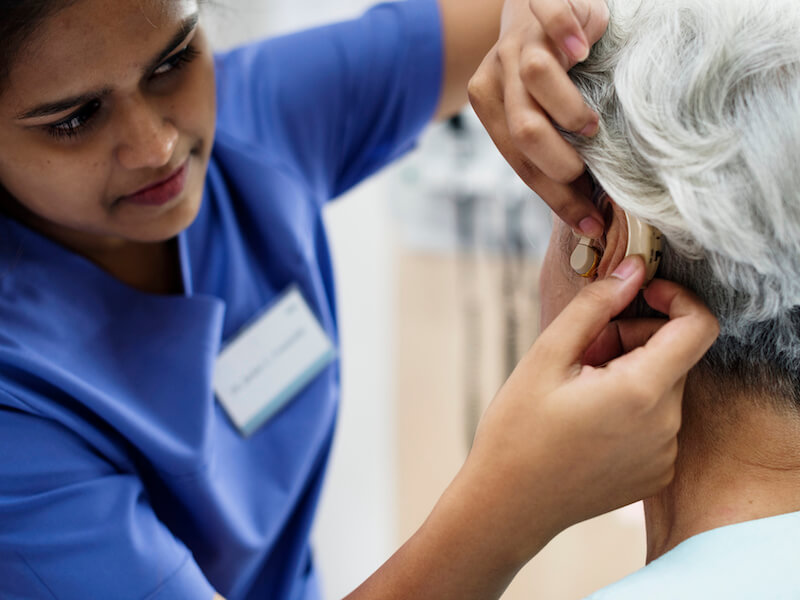
If you have hearing aids but you’re still having problems hearing, your hearing aids might need professional repair.
You take care of your hearing aids. You baby them. You charge them nightly and clean them daily.
But you can’t understand why your hearing aids aren’t working effectively and it’s really frustrating. The good news is, troubleshooting the problem is fairly straight forward. Keep in mind: your number one job is to avoid damaging your hearing aid further (or else replacing them may be necessary).
Your Hearing Aid Might Need Troubleshooting
Every design of hearing aid is different so make use of your owner manual for troubleshooting and maintenance. Here are some things you can check on most models:
- Wax accumulation: Perform a visual examination of your hearing aid to ensure that there is no wax buildup interfering with normal operation. Even if you perform routine cleaning, sometimes wax can accumulate quickly, so it’s worth checking this off your list.
- Keep your microphone clear: Check for anything obstructing the microphone of your hearing aid. An obstructed microphone can cause feedback or can cause your hearing aids to sound broken or silent.
- Check your battery: Always double check your battery level even if you are sure your hearing aid charged all night. If your hearing aid has changeable batteries, it may not be a bad idea to check if those batteries are in properly or if a new one solves the problem.
- Check for noticeable damage: Cracks or loose components may appear around the shell of your hearing aids so don’t forget to inspect for that. Cracks could allow moisture in and might be a sign of further damage.
Each of these concerns will have a unique strategy so consult your owner’s manual. Self maintenance will be possible in certain cases. (But, again, consult the instructions.)
When Does my Hearing Aid Require Repair?
Your hearing aid will probably need professional servicing if you keep having problems with it after doing these basic maintenance tasks. Because you depend on your hearing aids for all of your everyday conversations and social activities, this most likely doesn’t sound very attractive.
However, it’s worth mentioning that “repair” doesn’t always mean you need to “send your hearing aid out” for service and wait a number of weeks. Sometimes, we can repair it while you wait.
So in those cases, you will be able to get your hearing aid back before the day’s end (this, of course, depends on the severity of the damage, which is all the more reason to bring your devices in for repair as soon as you can).
Not all cases can be fixed in house though. And on those occasions, you may find yourself needing a backup pair of hearing aids. So if you have an old pair lying around, ask us whether they will serve temporarily. There may even be a loaner pair at our office that we can loan you until you get yours back.
Don’t Put Off Getting Help For Your Hearing Aids
It’s essential to have your hearing aids repaired as soon as you detect any falter or fading of the sound quality.
If you do this you will be more likely to avoid any downtime. Neglected hearing loss can affect your overall health, and that includes your mental health. An even more serious concern is that your hearing will get worse as your hearing aids sit forgotten in a drawer.
The best way to keep your hearing healthy is to keep those hearing aids functioning. Keeping them charged and clean and if necessary, bringing them in for maintenance is the easiest way to do that.
